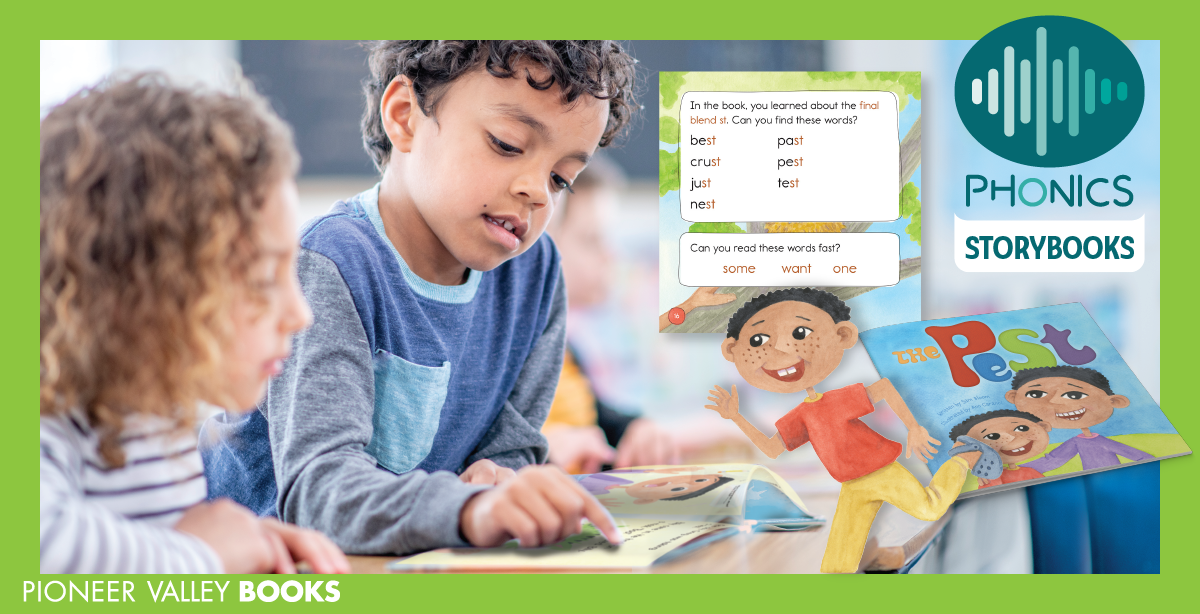
A Pioneer Valley Books fan recently asked Michèle Dufresne about her decision to write decodable books. The fan recognized that in the past Dr. Dufresne had expressed the thinking that students learn best when their teacher reacts to their reading miscues in the moment during text reading and that she objected to using decodable text that was contrived and inauthentic.
Here is Michèle’s response.
Lesson learned! We should never say never when it comes to learning about the best ways to teach children! I have spent the last 18 months reviewing the science and observing children reading decodable text from many different publishers. I still object to using any text that is not meaningful, engaging, or natural sounding. But I did begin a journey to see if text could be both decodable and provide students with an engaging storyline and natural language structure.If you have seen any of the new books from our Phonics Storybooks collection, I think you will agree it can be done. The books follow a systematic scope and sequence but also feature memorable characters/storylines and engaging informational text. As I developed and wrote these books, I piloted them extensively with children learning to read, and the results were very favorable.
I continue to think that using decodable books will not be enough to build a strong reading processing system. I know that students need natural-language texts in order to develop the flexibility and problem-solving skills that research shows successful readers need.
Regarding my statement from several years ago that students learn best when their teacher reacts to their reading miscues in the moment during text reading: I continue to believe that prompting and scaffolding as students read is essential in providing targeted instruction to children learning to read. Many novice teachers are entering our classrooms, and I worry that they are not being trained in how to observe and respond to student mistakes and will not recognize partial errors that can be used to provide effective instruction.
At Pioneer Valley Books, we are fully committed to providing teachers with the best resources that work for children, and we are open to evolving our thinking based on the latest research and analysis. We will be working with an independent research organization to design studies that analyze the effectiveness of new PVB materials. And we will continue to study and observe children in order to develop cutting-edge materials that will deliver the best possible literacy instruction.




